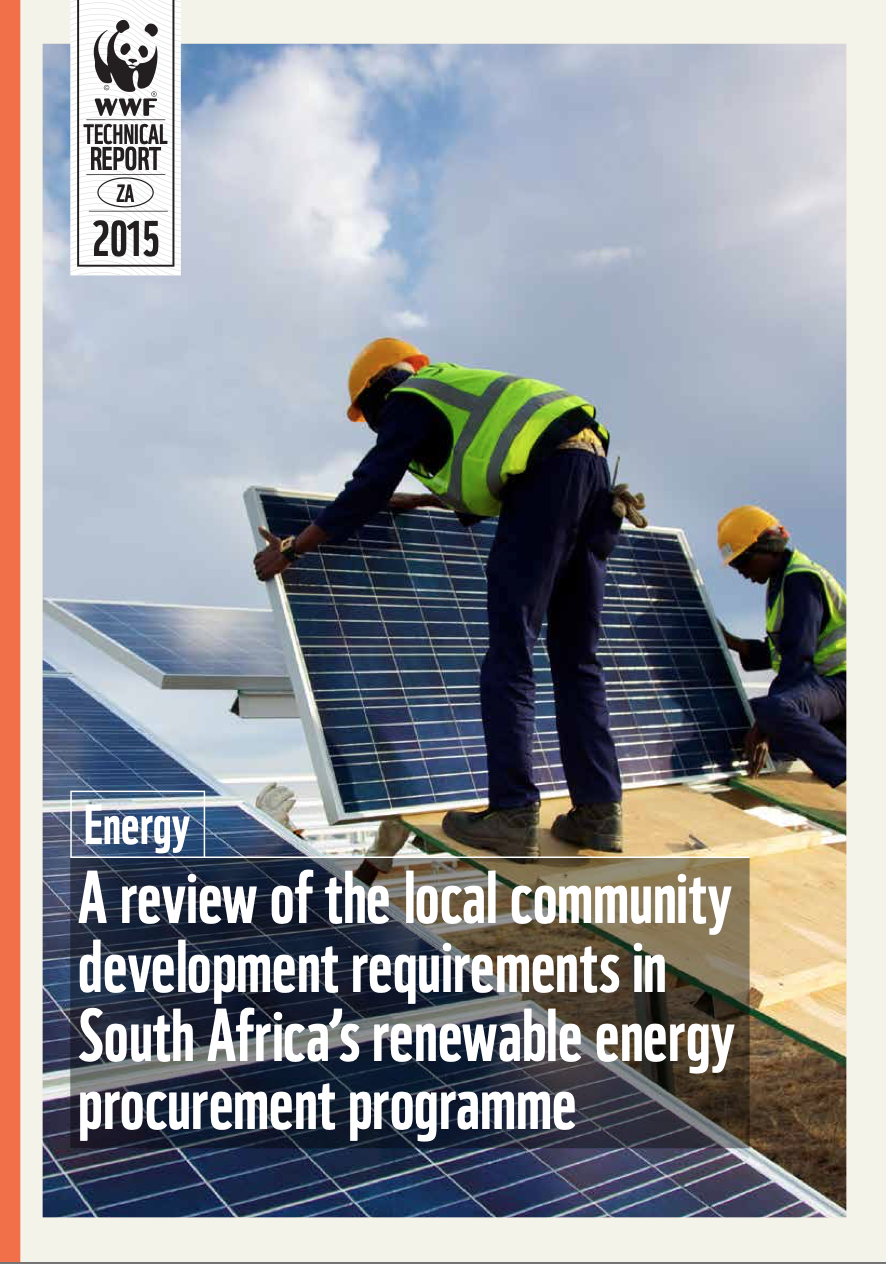
A review of the local community development requirements in South Africa’s renewable energy procurement programme
Author(s): Holle Linnea WlokasLink to CST author(s): Dr. Holle Linnea Wlokas
Publication: WWF Technical Report ZA
Year: 2015
Full reference:
Download publication
Summary
By May 2015, the renewable energy independent power producer procurement (REIPPP) programme had approved 79 wind, solar and hydro projects and asked each of them to contribute towards local community development through socio- economic and enterprise development, local ownership and local job creation. These requirements have to be fulfilled within a 50km radius of the project and oblige renewable energy companies to engage with the developmental opportunities and needs of communities around their project sites.
This report sheds light on the policy requirements and initial implementation experiences of the REIPPP. It explores emerging evidence of local community development schemes established by the renewable energy industry and proposes steps to overcome emerging challenges. Information in this report is based on a review of the bid documents submitted to the Department of Energy as well as engagements with policy stakeholders in public forums such as conferences and workshops. Stakeholders include Government and the private sector, non-governmental organisations as well as members of communities engaged with renewable energy projects.
The findings indicate that private sector companies are taking the requirements seriously, but they require support to maximise the developmental benefits of the programme and minimise the risk of unintended consequences that will hamper the success of community benefit initiatives. The REIPPP assigns renewable energy companies with the difficult task of creating local developmental benefits in an effort to reduce the weight of structural and systemic issues of poverty and inequality. Companies, however, lack the capacity and incentive to appropriately engage with issues of development planning.
The renewable energy industry is a necessary addition to the South African energy landscape. Successful project management led to about a third of the approved projects already delivering electricity to the grid, only four years after the launch of the REIPPP. The same dedicated project teams are attending to Government’s stipulated requirements for local economic development. Without a clear understanding of the policymakers’ vision associated with these requirements, project developers are approaching the governance and investment of the allocated funds in various ways, including the establishment of new community trusts and the funding of, for example, bursary schemes.
To date, Government has failed to guide project developers through requirements for impact monitoring and prescribed consultation with local stakeholders towards a more inclusive and transparent practice. Additionally, the competitive and uncertain policy environment contributes to project companies mostly planning and dealing with the requirements in isolation, consulting with private development service providers instead of engaging local government and residents around the governance and investment of the funds allocated to local community development. Project companies also seldom communicate with neighbouring corporate development funders or other renewable energy projects. This leads to confusion amongst local residents and carries the risk of causing conflict and other unintended consequences such as duplication of efforts.

